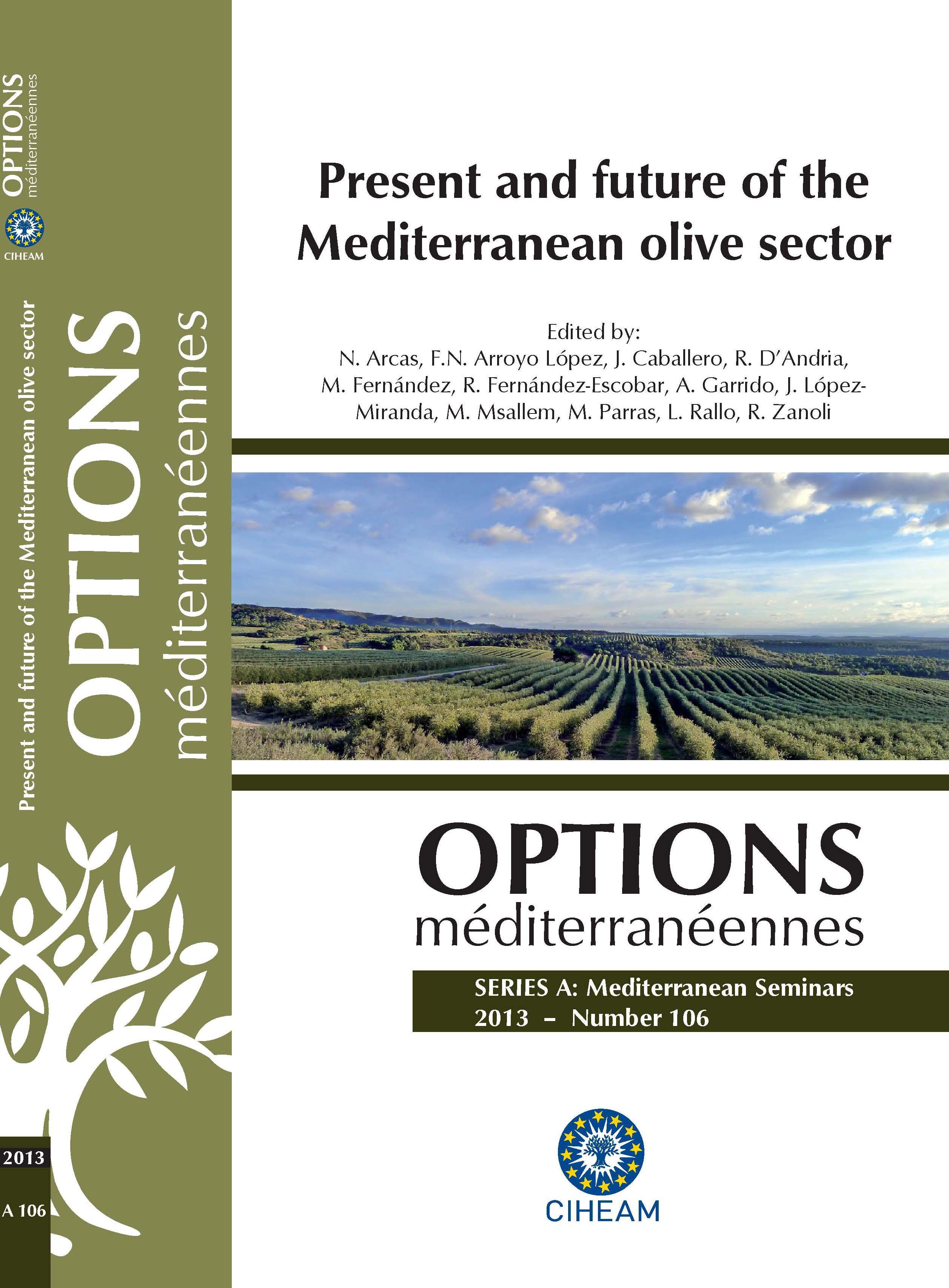| Article précédent | p. 179-180 | Article suivant |
The place of scientific information in the promotional activities of the International Olive Council. Olive oil and health: consumers’ perception
The characteristics of olive oil are the main factor associated with the quality of the product. The Mediterranean Diet, health and taste are the aspects with which olive oils are most closely identified. In the minds of consumers, olive oils are chiefly seen as being healthy, nutritional, natural and easy to digest. All these properties make it the ideal choice of fat, not just because of its myriad health-promoting benefits but also because of its organoleptic and culinary attributes. One of the key aims of the IOC is to assert the sound nutritional and dietary benefits of olive oil, which is a core element of the Mediterranean Diet. Collecting and disseminating scientific knowledge on the nutritional and health related advantages of olive oil is central to the task of informing consumers about this product and promoting its consumption. Olive oil is the chief source of fat in the Mediterranean diet. In recent years there has been a surge of interest in this dietary model, which has been “rediscovered” as a result of studies on disease prevention. The key to the biological potential, nutritional properties and organoleptic characteristics of olive oil lies in its composition, which is also central to understanding its functions. Being a natural fruit juice, it retains the taste, aroma, vitamins and properties of the olive. The component fatty acids of the triglycerides in olive oil differ to a certain extent according to variety and growing conditions. Monounsaturated oleic acid is clearly the predominant fatty acid, accounting for between 55 and 83 per cent. Coupled with the large amount of antioxidants it contains, this adequate degree of unsaturation is what gives olive oil its distinctive heat resistance and stability. The presence of minor components, particularly large amounts of antioxidants and vitamins (tocopherols, carotenoids and phenolics), lend it very important protective properties. Extensive research has produced new data on the metabolism, bioavailability and numerous biological effects of olive oil, as well as on its effects in preventing cell oxidation, protecting against free radical damage and in preventing cancer and ageing. On top of its sensory and gastronomic properties, olive oil has numerous medical benefits in disease prevention which are being constantly corroborated by science. As a consequence of this combination of factors, today’s ever better informed consumers view olive oil as a product that is unique, healthy and natural.
Las características del aceite de oliva son el principal elemento asociado a la calidad del producto. Dieta mediterránea, salud y sabor son los aspectos con los que más se identifica a los aceites de oliva. Para el consumidor la principal propiedad de los aceites de oliva son sus beneficios para la salud, sus características nutricionales, su carácter natural y su fácil digestión le convierten en grasa de elección no sólo debido a sus múltiples bondades para la salud sino también organolépticas y gastronómicas. Uno de los objetivos prioritarios del Consejo Oleícola Internacional (COI) es afirmar la validez y los beneficios nutricionales y dietéticos del aceite de oliva, considerado componente esencial de la dieta mediterránea. La recopilación y divulgación de los conocimientos científicos sobre el valor nutricional y los beneficios para la salud del aceite de oliva constituyen la base de las acciones de información y promoción del consumo de éste a nivel mundial. El aceite de oliva es la fuente principal de grasa de la dieta mediterránea. En los últimos años ha habido un creciente interés por este tipo de alimentación que ha sido «redescubierta» gracias a diferentes estudios sobre prevención de algunas enfermedades. La composición del aceite de oliva es de gran importancia para explicar su potencial biológico y aspectos nutricionales así como sus características organolépticas; es, asimismo, fundamental para conocer sus distintas funciones. Al ser un zumo natural conserva el sabor, aroma, vitaminas y propiedades de la aceituna. Los ácidos grasos que componen los triglicéridos del aceite de oliva presentan una cierta variabilidad según la variedad y las condiciones de cultivo. Existe un claro predominio del ácido oleico que puede llegar hasta un 55-83%, es monoinsaturado. Este adecuado grado de insaturación unido a la gran cantidad de sustancias antioxidantes del aceite de oliva es lo que le confiere su particular estabilidad y resistencia al calor. La presencia de componentes menores, en particular los antioxidantes y vitaminas (tocoferoles, carotenoides y compuestos fenólicos), de los que posee una gran cantidad y le confieren propiedades especialmente importantes. Gracias a numerosas investigaciones, se tienen nuevos datos sobre su metabolismo, biodisponibilidad y numerosos efectos biológicos, previenen la oxidación celular, protegen contra la lesión de los radicales libres y previenen la carcinogénesis y el envejecimiento. Además de sus propiedades sensoriales y gastronómicas se han demostrado numerosos beneficios en el ámbito de la medicina en la prevención de distintas enfermedades que la ciencia confirma día a día. Todo ello contribuye a que el consumidor, cada vez más informado, considere al aceite de oliva como un producto único, sano y natural
- [ Afficher ]
- [ Télécharger ]
- [ Exporter la citation ]
Vous pouvez télécharger la citation au format :
- [ Imprimer ]
-
Mots-clés
HUILE D'OLIVE, SCIENCE DE L'INFORMATIONCiter cet article
Fernández M. The place of scientific information in the promotional activities of the International Olive Council. Olive oil and health: consumers’ perception. In : Arcas N. (ed.), Arroyo López F.N. (ed.), Caballero J. (ed.), D'Andria R. (ed.), Fernández M. (ed.), Fernandez Escobar R. (ed.), Garrido A. (ed.), López-Miranda J. (ed.), Msallem M. (ed.), Parras M. (ed.), Rallo L. (ed.), Zanoli R. (ed.). Present and future of the Mediterranean olive sector . Zaragoza: CIHEAM / IOC, 2013. p. 179-180. (Options Méditerranéennes : Série A. Séminaires Méditerranéens; n. 106). International Seminar: Present and Future of the Mediterranean Olive Sector, 2012/11/26-28, Zaragoza (Spain). http://om.ciheam.org/om/pdf/a106/00006817.pdf



